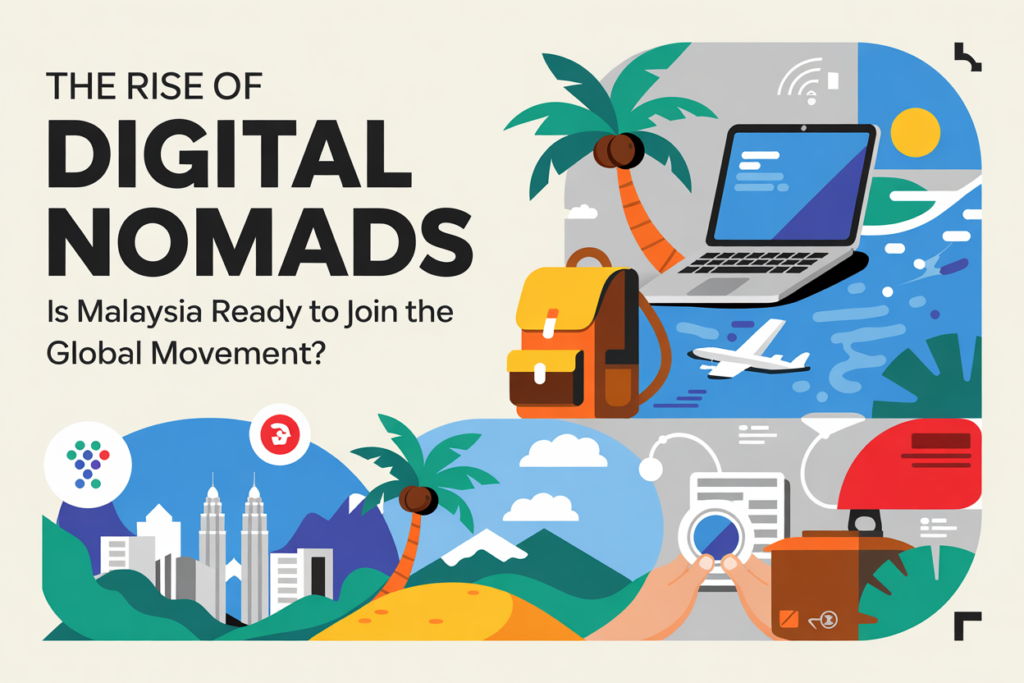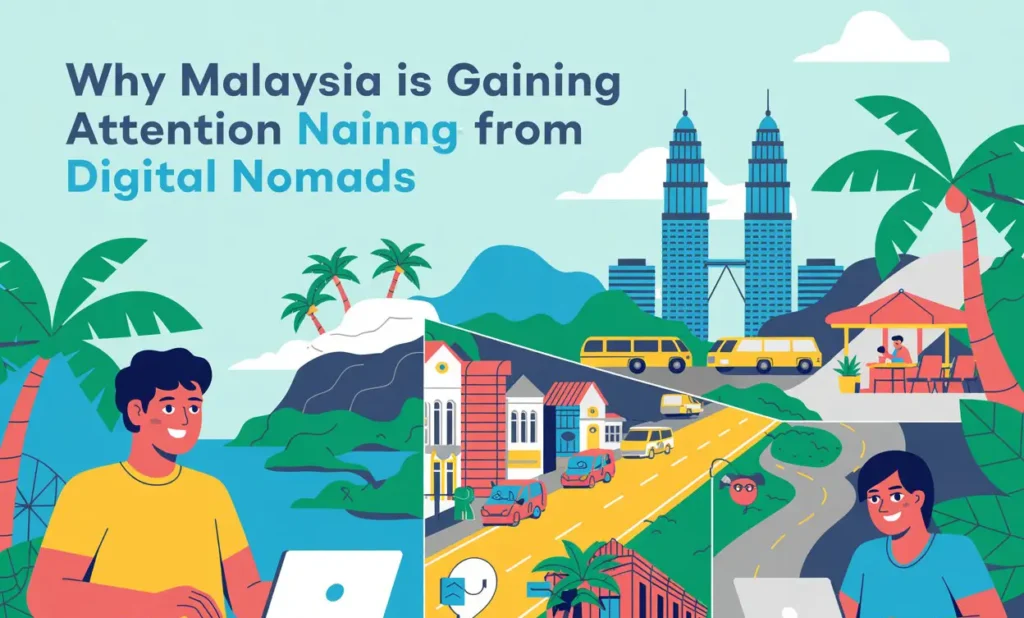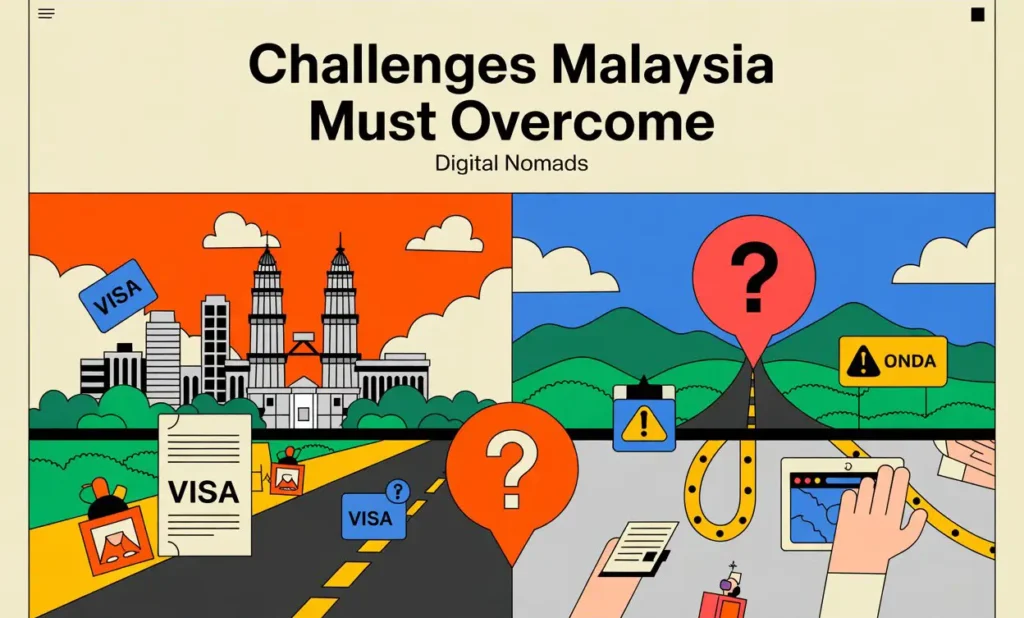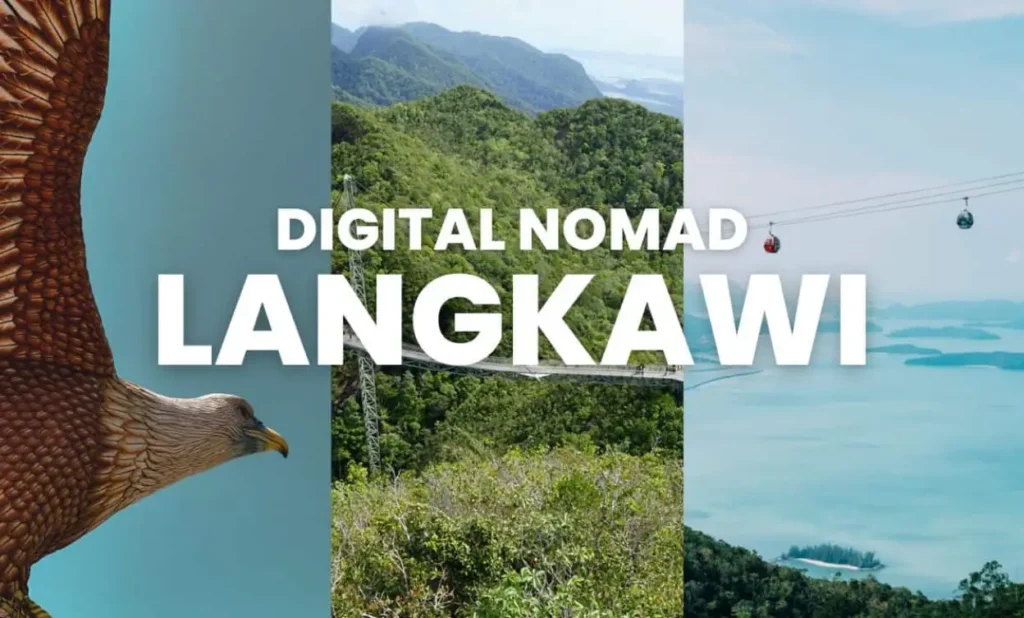
Understanding the Digital Nomad Phenomenon
The digital nomad lifestyle has evolved from a niche trend into a global workforce revolution, empowered by high-speed internet, remote collaboration tools, and the desire for a more flexible lifestyle. With millions of professionals now choosing to work from anywhere in the world, countries are adapting to attract this new demographic of tech-savvy, globally mobile talent.
Digital nomads are not just backpackers with laptops; they are freelancers, entrepreneurs, remote employees, and startup founders who bring economic value, cultural diversity, and innovation to the regions they temporarily reside in. Countries such as Portugal, Estonia, and Thailand have already made significant strides in welcoming digital nomads.
Why Malaysia Is Gaining Attention from Digital Nomads

1. Strategic Location and Accessibility
Situated at the heart of Southeast Asia, Malaysia offers a prime geographic location for digital nomads looking to explore the region. With affordable and frequent flights to neighboring countries like Thailand, Indonesia, Singapore, and Vietnam, Malaysia is an ideal base for regional travel.
Cities like Kuala Lumpur and Penang serve as international hubs, boasting well-connected airports and efficient public transportation systems that simplify mobility for remote workers.
2. Cost of Living and Quality of Life
Malaysia strikes a rare balance between low cost of living and high quality of life. Accommodation, transportation, healthcare, and food are affordable compared to Western countries, without sacrificing comfort or accessibility. A digital nomad can comfortably live on $1,000 to $1,500 USD per month, depending on the city.
In addition to affordability, Malaysia offers excellent infrastructure, modern coworking spaces, and a variety of leisure activities from beach resorts in Langkawi to rainforest retreats in Borneo making it a well-rounded choice for work-life balance.
3. Language and Communication
Malaysia’s widespread use of English as a second language creates a significant advantage for international digital nomads. Communication barriers are minimal in business, government services, and daily life, making it easier for remote workers to navigate the local system, establish relationships, and integrate into communities.
Challenges Malaysia Must Overcome

1. Visa Options and Immigration Policies
Despite its appeal, Malaysia does not yet offer a specialized digital nomad visa, putting it behind regional competitors like Indonesia (Bali’s digital nomad visa) and Thailand (Smart Visa). Currently, most nomads rely on tourist visas or Malaysia My Second Home (MM2H), which are not tailored to short- or medium-term remote workers.
To fully embrace the digital nomad economy, Malaysia must implement targeted visa solutions that include tax incentives, longer stay durations, and easy application processes for remote workers and freelancers.
2. Internet Connectivity and Infrastructure Gaps
While major cities enjoy fast and reliable internet, rural and remote areas still face connectivity issues. For digital nomads who seek inspiration off the beaten path, this can be a dealbreaker. Closing the digital divide and expanding high-speed internet coverage is crucial for enabling location-independent work beyond urban centers.
3. Regulatory Ambiguity and Taxation
The lack of clear regulations regarding remote work, taxation, and freelancing for foreign nationals creates uncertainty. Many digital nomads remain unaware of their obligations or rights, leading to under-the-table arrangements that benefit neither the country nor the individual. Transparent tax frameworks and clear legal structures will encourage compliance and boost national revenues.
Key Cities in Malaysia Ideal for Digital Nomads
Kuala Lumpur – The Tech-Driven Capital

With a high concentration of coworking hubs, startup incubators, and international communities, Kuala Lumpur is a thriving ecosystem for remote professionals. Districts like Bangsar, Mont Kiara, and Bukit Bintang are especially popular for their cafes, vibrant nightlife, and fast internet.
Top coworking spaces in Kuala Lumpur:
- Common Ground
- WORQ
- Colony
Penang – Culture Meets Innovation

A UNESCO World Heritage Site, George Town in Penang is rapidly gaining traction among creative professionals and freelancers. With a unique blend of heritage, modernity, and coastal living, Penang offers a relaxed atmosphere without compromising digital infrastructure.
Johor Bahru – The Singapore Alternative

Located near Singapore, Johor Bahru (JB) offers digital nomads’ proximity to one of the world’s most expensive cities at a fraction of the cost. With the rise of Iskandar Malaysia, JB is becoming a strategic spot for remote workers seeking urban comfort and regional connectivity.
Langkawi – Island Life with a Digital Edge

Langkawi appeals to digital nomads looking for a slower pace and natural beauty, but it’s not without challenges. While lifestyle perks are immense, more investment in internet infrastructure and coworking amenities is needed to support long-term stays.
The Economic Potential of Embracing Digital Nomads

Malaysia stands to gain significantly from attracting digital nomads, who contribute to the economy through:
- Rental income and tourism spending
- Local business patronage (cafes, gyms, wellness centers)
- Knowledge sharing and startup culture stimulation
- Job creation in service and tech sectors
The global digital nomad population is expected to exceed 35 million by 2030, representing a mobile economic force that no forward-looking nation should ignore.
The Time is Now
Malaysia is at a strategic crossroads. With the global shift toward remote and hybrid work models, it has the opportunity to rebrand itself not just as a tourist destination, but as a progressive, tech-enabled, and inclusive digital nomad hub. The infrastructure is in place, the lifestyle is attractive, and the people are welcoming.
What remains is for policy and execution to catch up with potential. If Malaysia acts now, it can be among the top destinations for digital nomads in the coming decade.
